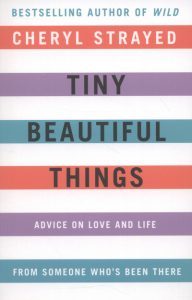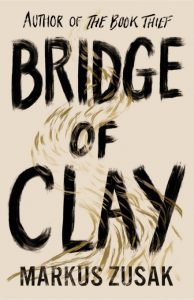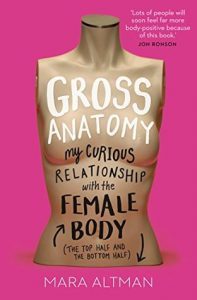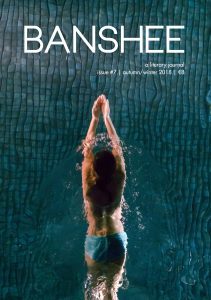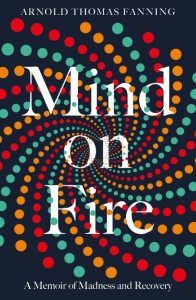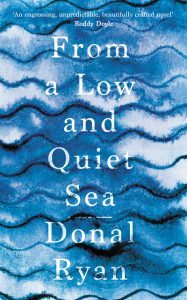Claire Hennessy's Blog, page 5
October 28, 2018
Bookish Thoughts: October
Welcome to the monthly-round-up, where I yap about books I’ve read recently and what the shiny bits were, whether they came out years ago or last week.
From the archives:
Gretchen Rubin’s Better Than Before addresses habit-making and happiness with a good deal less of the research seen in The Happiness Method and a good deal more anecdotal, and often self-congratulatory, evidence. I wanted to like this a lot but it did feel a little flimsy and a tad too gimmicky, establishing categories for individuals while also often shrugging and going ‘it depends!’ Sometimes that’s a valid point, but it did wear thin.
Steven Pressfield’s The War of Art is a nice one to dip into while seeking writerly, or creative, motivation, but it’s not without its problems – particularly its later emphasis on religion and its dubious pseudo-psychological assertions. Take with an unhealthy serving of salt.
Cheryl Strayed’s Tiny Beautiful Things – a selection of her ‘Dear Sugar’ columns – moved me hugely. I read it mostly on buses to and from a convention this month, and had to put it aside at regular intervals to blink back the tears. It made me want to be kinder. Other things too, but, oh. It’s insightful and empathetic and a little bit firm and so, so warm.
My Meg Wolitzer love continues – I read her first book, Sleepwalking, which is about a trio of ‘death girls’ (obsessively devoted to female poets who died by suicide – Plath, Sexton and a fictional one, Lucy Ascher) and the one in particular who’s prompted to seek out Ascher’s family. Slimmer than her more recent novels, it’s still a gorgeous read about literary crushes and grief. I’d have liked a bit more Plath (and it’s only occured to me now that her YA novel, Belzhar, revisits an awful lot of the stuff in this book), but I’ve also a great fondness for these fictional writers (echoes of Possession) slotted into the real-life canon.
The Endless King, the final volume of Dave Rudden’s Knights of the Borrowed Dark trilogy, interrogates familiar fantasy tropes and has a surprisingly lovely epilogue.
This month’s shiny new reads:
YA fiction reviewed this month in the Irish Times : Deb Caletti’s A Heart In A Body In The World; Jason Reynolds’s For Every One; Alex Wheatle’s Kerb Stain Boys; Robert Muchamore’s Killer T; Susin Nielsen’s No Fixed Address.
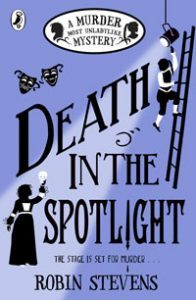
Crime-y books ranging from the domestic to the procedural: Christobel Kent’s What We Did is an intriguing look at how you’d actually, realistically, deal with a dead body; Adele Parks’s I Invited Her In is a compelling and twisty dive into an old friendship revitalised and then leveraged (with an implausibly happy ending for the sociopath-esque character); Robert Galbraith’s Lethal White, the fourth Cormoran Strike novel, is a delight, with the underlying mystery coming second to the messy dynamics between Strike and his assistant.
The latest in Robin Stevens’s Murder Most Unladylike series, Death In The Spotlight, showcases the theatre world of 1930s London and also – spoilers! – features Daisy’s long-awaited coming-out scene. This series, set partly in a boarding school where girls might have a ‘pash’ for another girl, has been clever and brilliant about girls, sexuality, and friendship from the very beginning, and this is a gorgeous addition to the series. These are pitched at ‘middle grade’ readers – 9-12 – but teen readers (and indeed adult readers) would also appreciate them.
Josie Silver’s One Day In December is a delicious, page-turning romance.
Jo Cotterill’s Jelly is a warm, empowering middle-grade story about a class clown who finds her true voice.
Kerry Cohen’s Lush is a memoir of alcohol abuse that invites and addresses questions about women, relaxation, and pressure. Cohen has previously written about her problematic and addictive relationship with men and sex, and this feeds into this story too; it’s an interesting read though at its best when it addresses the broader context rather than the personal one.
Markus Zusak’s latest, Bridge of Clay, is a little bit harder to get into than The Book Thief, but once in, it’s difficult to escape that similar feeling of being swept up in a grand and quasi-magical story that also offers profound truths about how we live. This is the story of five brothers, and the steps their parents took before they were born, and the one brother who tries to help the father build a bridge, and the brothers left behind, and the girl left behind. It’s about love and family and fighting and animals and music and Greek epics and emigration and struggling and trying and love all over again, a small story made mythic. I kept thinking of Patrick Kavanagh’s ‘Epic’ when reading it:
I have lived in important places, times
When great events were decided, who owned
That half a rood of rock, a no-man’s land
Surrounded by our pitchfork-armed claims.
I heard the Duffys shouting “Damn your soul!”
And old McCabe stripped to the waist, seen
Step the plot defying blue cast-steel –
“Here is the march along these iron stones.”
That was the year of the Munich bother. Which
Was more important? I inclined
To lose my faith in Ballyrush and Gortin
Till Homer’s ghost came whispering to my mind.
He said: I made the Iliad from such
A local row. Gods make their own importance.
To watch out for:
I’m not even going to pretend to be objective about this, because it’s a manuscript I’ve been reading with the editor-hat on, but Lucy Sweeney Byrne’s first book will be out from Banshee next year and it’s delicious.
October 22, 2018
“Who the bard? Me the bard!” (recent writings on TV shows of joy)
One of my current great TV loves is Upstart Crow, a BBC series written by Ben Elton and featuring David Mitchell as an early-career Shakespeare, trying to get his plays written amidst domestic life and the frustrations of public transport. I wrote a review of season 3 for HeadStuff, with a lot of feelings.
And here’s a piece I wrote marking the 25th anniversary of Frasier, which is mostly about how much I love Niles Crane.
September 29, 2018
Bookish Thoughts: September
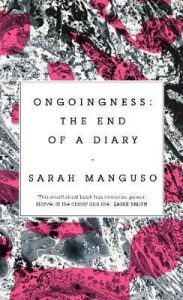
Welcome to the monthly-round-up, where I yap about books I’ve read recently and what the shiny bits were, whether they came out years ago or last week.
From the archives:
I read Maggie O’Farrell’s memoir I Am, I Am, I Am (structured non-linearly around moments of almost-death, of near-misses) and adored it as much as everyone said I would.
I’m also listing Sarah Manguso’s Ongoingness in here, a short and insightful account of diary-keeping and writing and how we reflect on the world and time and memory, as it was first published a few years back (although it’s new to audiences this side of the Atlantic). I read her 300 Arguments earlier this year and am just loving her.
I’m a bit smitten with Meg Wolitzer at the moment; I gobbled up The Wife which was everything I felt I wanted from a book, and then adored The Interestings. I’ve yet to read her new one but am eager to get started…
Sarah Winman’s Tin Man is a quick but gorgeous read about loneliness and love.
This month’s shiny new reads:
YA fiction reviewed at the start of this month in the Irish Times : Melvin Burgess’s The Lost Witch; Marisha Pessl’s Neverworld Wake; Elana K. Arnold’s What Girls Are Made Of; Nicky Singer’s The Survival Game; Laura Wood’s A Sky Painted Gold. And at the end of the month: Tina Callaghan’s Dark Wood Dark Water; SK Wright’s It Ends With You; Lucy van Smit’s The Hurting; Patrick Ness’s And The Ocean Was Our Sky (illus. Rovina Cai); Kody Keplinger’s That’s Not What Happened.
Sarah Breen & Emer McLysaght’s Aisling returns in The Importance of Being Aisling, a warm and funny hug of a book that touches on Notions, modern Ireland and following your dream. Gabrielle Fernie’s non-fiction Lush offers up the more disastrous (but still hilarious) heroine for our times, focusing on Fernie’s real-life experiences leading up to her best friend’s wedding. Also on the women-in-non-fiction side of things is Mara Altman’s funny, relatable and honest exploration into the ickiness of the human body, Gross Anatomy.
Re: historical fiction to watch out for, two tales inspired by real events. Heather Morris’s The Tattooist of Auschwitz is a love story set against the bleak backdrop of concentration camps; Nuala O’Connor’s Becoming Belle takes us to late Victorian London.
Psychological thrillers of note: Claire Askew’s too-real account of the consequences of a college shooting, All The Hidden Truths, Sabine Durrant’s family drama Take Me In, and Riley Sager’s delicious, page-turning summer-camp-set Last Time I Lied.
To watch out for:
Lizzy Barber’s My Name Is Anna (January 2019), a twisty psychological thriller about two teenage girls raised in different countries but nevertheless linked by a disappearance fifteen years ago.
Deirdre Sullivan’s Perfectly Preventable Deaths (summer 2019) – a wonderful witchy YA novel from the award-winning (and lovely) author.
September 10, 2018
Banshee #7
Issue #7 of Banshee is now available to pre-order. Also join us for:
a fiction showcase as part of the Cork Short Story Festival, 2.30pm Friday 14th September (Grand Parade Library, Cork)
the Dublin launch of the issue, Winding Stair bookshop, 6.30pm Wednesday 19th September (Ormond Quay, Dublin)
Or catch up with the journal here:
Banshee bundle
nab a subscription (also available as a gift for literary-inclined friends)
read a selection of excerpts from previous issues
And for the writers:
submissions are open throughout October
some interviews where we discuss what we’re looking for
August 25, 2018
Bookish Thoughts: August
Welcome to the monthly-round-up, where I yap about books I’ve read recently and what the shiny bits were, whether they came out years ago or last week.
From the archives:
Leanne Lieberman’s The Most Dangerous Thing, a Canadian YA novel that delicately explores love and sexuality and the female body, from the perspective a girl fiercely embarrassed by the whole business.
Dara O Briain’s Tickling The English (I am a huge fan but curiously late to the party with this one – I remember getting the impression, when it was first published, that it would be quite fluffy rather than a brilliantly insightful, hilarious and shrewd take on nationality, identity, culture, leisure, and comedy).
Sort-of from the archives, as in ‘from the first half of this year’:
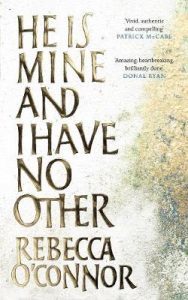
Jacqueline Wilson’s Rose Rivers is a delightful and atmospheric addition to her Victorian-set fiction for young (but not too young) readers.
Psychological thrillers devoured: Louise Jensen’s The Date (very unnerving); Laura Marshall’s Three Little Lies (gripping); C. L. Taylor’s The Fear (twisty).
Deborah Levy’s second volume of ‘living autobiography’, The Cost Of Living, is very good on writing, motherhood, performed femininity, grief & many other things.
Rebecca O’Connor’s He Is Mine And I Have No Other (her debut novel, but you may know her as a poet and editor of The Moth) is a creepy and unsettling account of first love (fifteen-year-old Lani falls for a mysterious boy in a 1990s small town) against a backdrop of all the terrible things Ireland has done to its women.
This month’s shiny new reads:
YA fiction reviewed this month in the Irish Times : Emily M Danforth’s The Miseducation of Cameron Post; Holly Bourne’s Are We All Lemmings & Snowflakes?; Lydia Ruffles’s Colour Me In; Adam Silvera’s More Happy Than Not; Tom Pollock’s White Rabbit Red Wolf.
‘Grown up’ non-fiction reviewed for HeadStuff: Matt Haig’s Notes On A Nervous Planet .
July 28, 2018
Bookish Thoughts: July
Welcome to the monthly-round-up, where I yap about books I’ve read recently and what the shiny bits were, whether they came out years ago or last week.
From the archives:
Laura Lippman’s Wilde Lake is utterly gorgeous. (Shocker, right?)
This month’s shiny new reads:
YA fiction reviewed this month in the Irish Times : Nikesh Shukla’s Run, Riot; Steven Camden’s Nobody Real; Tracey Mathias’s Night of the Party; Brian Conaghan’s The Weight of a Thousand Feathers; Melissa Albert’s The Hazel Wood.
‘Grown up’ fiction reviewed for HeadStuff includes Megan Abbott’s Give Me Your Hand and John Boyne’s A Ladder To The Sky .
Other books read & loved & out this month and/or relatively recently: Emilie Pine’s Notes To Self (interconnected essays about family & the body); Dawn Goodwin’s The Pupil (domestic suspense with a heavy writerly-element); Cass Hunter’s The After Wife (love, grief, & AI).
Things that were grand but not great: Francesca Lia Block’s The Thorn Necklace (memoir on writing/creativity); Bill Clinton & James Patterson’s The President Is Missing (fairly generic thriller despite the Big Names attached).
To watch out for:
Sally Rooney’s second novel, Normal People, longlisted for the Man Booker, is out at the end of August & is full of sharp observations about modern Ireland & other good things. (Yes, yes, you were all watching out for this one anyway. I apologise for being predictable.)
June 29, 2018
Bookish Thoughts: June
Welcome to the monthly-round-up, where I yap about books I’ve read recently and what the shiny bits were, whether they came out years ago or last week.
From the archives:
Colum McCann’s Letters To A Young Writer, which is most pleasing. I love that it defines a ‘young writer’ not by age but by experience, that you could be a ‘young writer’ of 80. Full of reassurance and advice and wisdom.
The Resurrection of Joan Ashby by Cherise Wolas was one of last year’s much-lauded debuts, an account of a young writer, a prodigy, whose work slows and eventually halts when she marries and has children. It felt far too long and self-indulgent, and it’s always tricky to include excerpts (too many) from a fictional writer who is supposed to be The Best Thing Ever. It also ends up being a tale of a wealthy middle-aged American ‘finding herself’ in India. I certainly didn’t hate it – it’s a good book, well-crafted – but it didn’t at all live up to the hype, as well as my own sense that this would be a book I adored.
This month’s shiny new reads:
YA fiction reviewed this month in the Irish Times : Louise O’Neill’s The Surface Breaks, Cath Crowley’s Words In Deep Blue, Annalie Granger’s In Your Light, Lygia Day Penaflor’s All Of This Is True, Cethan Leahy’s Tuesdays Are Just As Bad, and two recent non-fiction guides to teen mental health.
June is the month that all the reviewing for the Children’s Books Ireland annual Recommended Reads guide happens in, so that’s been guiding my reading Quite A Bit. (I’m just a girl who can’t say no, I’m in a terrible fix…) I’ve been reading all over the age spectrum (picture books all the way up to YA) & it’s been glorious. The guide will be available in October & my squeeing will be available then – but in the meantime let me just say Leila Sales’s If You Can’t Say Anything Nice is utterly wonderful.
Arnold Thomas Fanning’s Mind On Fire is brilliantly terrifying. An immediate, intense account of bipolar disorder that both unsettled and riveted me. As someone who reads a Great Deal of mental-illness-memoirs (also read Lucy Nichol’s A Series of Unfortunate Stereotypes this month), I feel qualified to note that this one really stands out.
Two gorgeous fiction reads: Caroline O’Donoghue’s debut, Promising Young Women, which explores women in the workplace and gets too-too-real at points while also having a delicious gothic element, and Caitlin Moran’s How To Be Famous, in which her semi-autobiographical heroine Dolly Wilde navigates mid-90s London, Britpop, creepy comedians, and what it means to be ‘talked about’.
To watch out for:
M A Bennett’s The Island, her second novel (the first being the delightful S.T.A.G.S.) is out in August. Privileged teens on a desert island and pages you can’t stop turning. Thoroughly enjoyed it.
June 21, 2018
Some things
I talked to the contributors to Autonomy about political writing for HeadStuff here (everyone basically agreed with the idea of ‘writing is political’ but had interesting thoughts about how and why)
Yapped with the very clever Julie Mayhew about the 18th century, otherness, and writing YA fiction here
May 30, 2018
Bookish Thoughts: May
Welcome to the monthly-round-up, where I yap about books I’ve read recently and what the shiny bits were, whether they came out years ago or last week. A short edition this month; my heart has been elsewhere. (REPEALED!)
From the archives:
A lot of rereading: Madeleine L’Engle and Paula Danziger.
Julia Cameron’s memoir, Floor Sample, which I wrote about, along with her books on creativity, here.
This month’s shiny new reads:
YA fiction reviewed this month in the Irish Times : Nic Stone’s Dear Martin, Malcom Duffy’s Me Mam. Me Dad. Me., Karen Gregory’s Skylarks, Akemi Dawn Bowman’s Starfish & Julie Mayhew’s The Electrical Venus.
Reviewed for HeadStuff : Cross Her Heart, Sarah Pinborough’s latest twisty-as-hell psychological thriller exploring the dark undercurrents of female friendships.
To watch out for:
Not yet read but excited for Arnold Thomas Fanning’s memoir Mind On Fire, out tomorrow (May 31st).
April 28, 2018
Bookish Thoughts: April
Welcome to the monthly-round-up, where I yap about books I’ve read recently and what the shiny bits were, whether they came out years ago or last week.
From the archives:
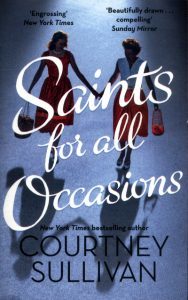
Courtney Sullivan’s Saints for All Occasions looks at an Irish-American family in Boston, beginning with two sisters, Nora and Theresa, in a small town in County Clare in the late 1950s, and moving back and forth between their past and the present-day, where the eldest of Nora’s children, Patrick, has died in what may or may not have been an accidental car crash. By this stage Theresa is a nun in an enclosed order, estranged from the sister who was once all she had; we slowly learn more about their family and the secrets within it. It’s a good read, but feels like very familiar territory for anyone who has read a lot of Irish fiction, which focuses a lot on the emigrant experience, naturally. I suspect it is the inverse of Maeve Binchy: her version of ‘America’ is often out-of-date, while Ireland is (if sometimes a bit wobbly in her later books) authentic. There are tiny Irish-specific details in the early part of this novel that are just a bit off, particularly around dialect and culture, while I suspect that all the Boston Irish stuff is pitch-perfect. Sure lookit. It’s grand.
Dandelion Clocks by Rebecca Westcott is a lovely MG novel about the last few months of a mother’s illness and how her daughter responds: by not quite understanding at first, and then with all the stages of grief. This is wonderful on the tiny unfairnesses of being a kid as well as the huge, giant unfairnesses of life.
Sometimes I love a good conspiracy-theory-thriller-y page-turner and oh boy did Dan Brown’s fifth Robert Langdon book, Origin, deliver. The usual puzzles to solve, Big Questions Asked, and high-action sequences interspersed with exposition-heavy exchanges of dialogue… utterly implausible but immensely entertaining.
This month’s shiny new reads:
YA fiction reviewed this month in the Irish Times : Emily XR Pan’s The Astonishing Colour of After, Keren David’s Stranger, Gayle Forman’s I Have Lost My Way, TE Carter’s I Stop Somewhere & Juno Dawson’s Clean.
Reviewed for HeadStuff : Indecent, Corinne Sullivan’s debut novel about a young trainee teacher who falls in love – or thinks she does – with a privileged male student.
On the crime/thriller front, I loved how Catherine Ryan Howard’s The Liar’s Girl is basically about the crapness of the Dublin rental market (as well as, y’know, murder) & the use Sam Blake makes of Trinity & South County Dublin culture in her third Cat Connolly novel, No Turning Back. Eva Dolan’s This Is How It Ends also impressed me, with its exploration of both police brutality & the impact gentrification has on an area & its inhabitants.
Finally, Donal Ryan’s From A Low And Quiet Sea does that wonderful thing with voices & the everyday horrors of life, as well as casting its net further to take in a Syrian refugee in Ireland. In some ways starting with this character made me yearn for more about this experience – Farouk’s story is so heartbreaking that we want to see more of him, & even though each of the three main characters are tied together in the end I wanted more. But, oh, beautifully written & observed, a gorgeous read.
To watch out for:
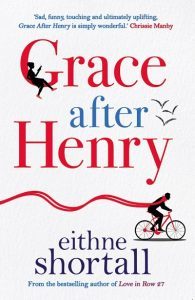
Eithne Shortall’s second novel Grace After Henry (out in May) is a warm, witty & compelling novel about a woman who loses her husband in an accident but then starts seeing him everywhere. A natural response to grief, yes, but when a man who looks far too like Henry for it to be mere coincidence arrives on her doorstep, it unravels a long-kept secret. As a heroine Grace is relatable and imperfect, and there’s so many quirky-but-not-unrealistic supporting characters – the Three Wise Men she meets in the graveyard, all of them tending to the resting places of their loved ones, or Portobello Dermo, her grumpy boss whose desire to be an actor overshadows his actual job & who’s becoming A Local Character – that it’s a delightful read, if naturally sad at times.
Sarah Manguso’s 300 Arguments is out in August from Picador, although already out in the US, which is another one to add to the TBR list. It’s a collection of aphorisms covering a wide range of topics – art, ageing, illness, sex, relationships, money, work – and so immensely quotable I found myself regularly scribbling down bits from it, or taking to Instagram with certain pages.

